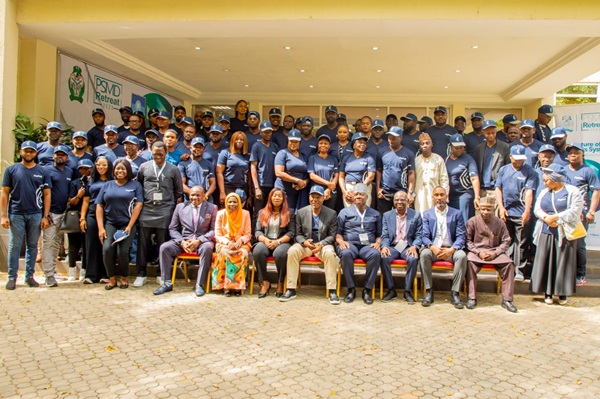
The National Information Technology Development Agency (NITDA) has revealed that it is seeking a partnership with the Central Bank of Nigeria (CBN) to take advantage of the emerging technologies in digital transactions.
The director-general of the NITDA, Mallam Kashifu Abdullahi underscored the imperative for collaboration between the Central Bank of Nigeria (CBN) and financial institutions in the country, to harness emerging technologies, artificial intelligence (AI) and data analytics, to deepen the landscape of digital payments.
Abdullahi communicated this vision during a panel discussion at the Central Bank of Nigeria’s 2023 payments system management departmental retreat programme.
Represented by the national director of the National Centre for Artificial Intelligence and Robotics (NCAIR), Engr Ya’u Garba, Abdullahi acknowledged the remarkable capability of financial technology (FinTech) in propelling Nigeria’s advancements in the industry and environmental, social and governance (ESG). This progress, he noted, aligns with a developmental regulation approach and enables policies collaboratively designed by the tech ecosystem.
“Deepening collaborations with key stakeholders will fast-track the realization of the goal. Upping the game in digital payments will not only continue to position Nigeria as a fintech-driven economy but will also enhance consumers’ user experience and help move many people out of poverty,” stated Abdullahi.
Responding to inquiries about Nigeria’s approach to the opportunities and threats posed by artificial intelligence, Abdullahi disclosed that the Federal Government has recognised the accelerating trajectory of AI models. He highlighted the ongoing development of an Artificial Intelligence Policy by the agency, slated to be unveiled soon. This policy will serve as the foundation for articulating rules, strategies, frameworks and guidelines for the adoption and deployment of AI.
“While artificial intelligence is often regarded as a double-edged sword, with tangible benefits but not without threats, our regulatory approach has always been not to stifle innovation,” Abdullahi emphasised.
Speaking on other policies of the Federal Government for the industry, Abdullahi asserted that the policies are startup ecosystem-friendly. He discussed the significance of the recently passed Start-up Bill, assented to by former president, Muhammadu Buhari in October 2022, highlighting its potential to address bottlenecks in the tech ecosystem.
Abdullahi conveyed that the NITDA would collaborate with the CBN and other stakeholders to regulate the AI space, ensuring that CBN’s adoption of particular technologies can expedite their potential for widespread implementation.
Regarding the Start-up Act, Abdullahi affirmed, “It is deemed to be a positive step forward for the country’s startup ecosystem and is expected to have a significant impact on businesses in the technology and innovation space”.
He emphasised the need for government collaboration with international organizations like the United Nations and the World Bank to build the infrastructure for fintech, fostering digital payments and narrowing the digital gap.
The retreat of the payments system management department of the Central Bank of Nigeria served as a platform for payments industry experts to engage in discussions around innovations in the payments system space. The main theme, “Future of Payments System: Opportunities, Threats and Propositions,” facilitated insightful conversations about the evolving landscape of payment systems in Nigeria and the world.
In attendance, the director of the payments system management department at CBN, Musa Jimoh emphasised the importance of aligning thinking around the future of payments systems with the goal of benefiting the common man on the street. The retreat aimed to explore contemporary issues and advancements in the Payments System space, focusing on optimizing efficiency and accessibility for all Nigerians.


